Hold the cheese, hold the sauce, at unique McDonald’s in Argentine shopping mall
December 26, 2019
BUENOS AIRES, Argentina – There are nearly 40,000 McDonald’s restaurants around the world that serve 68 million customers each day.
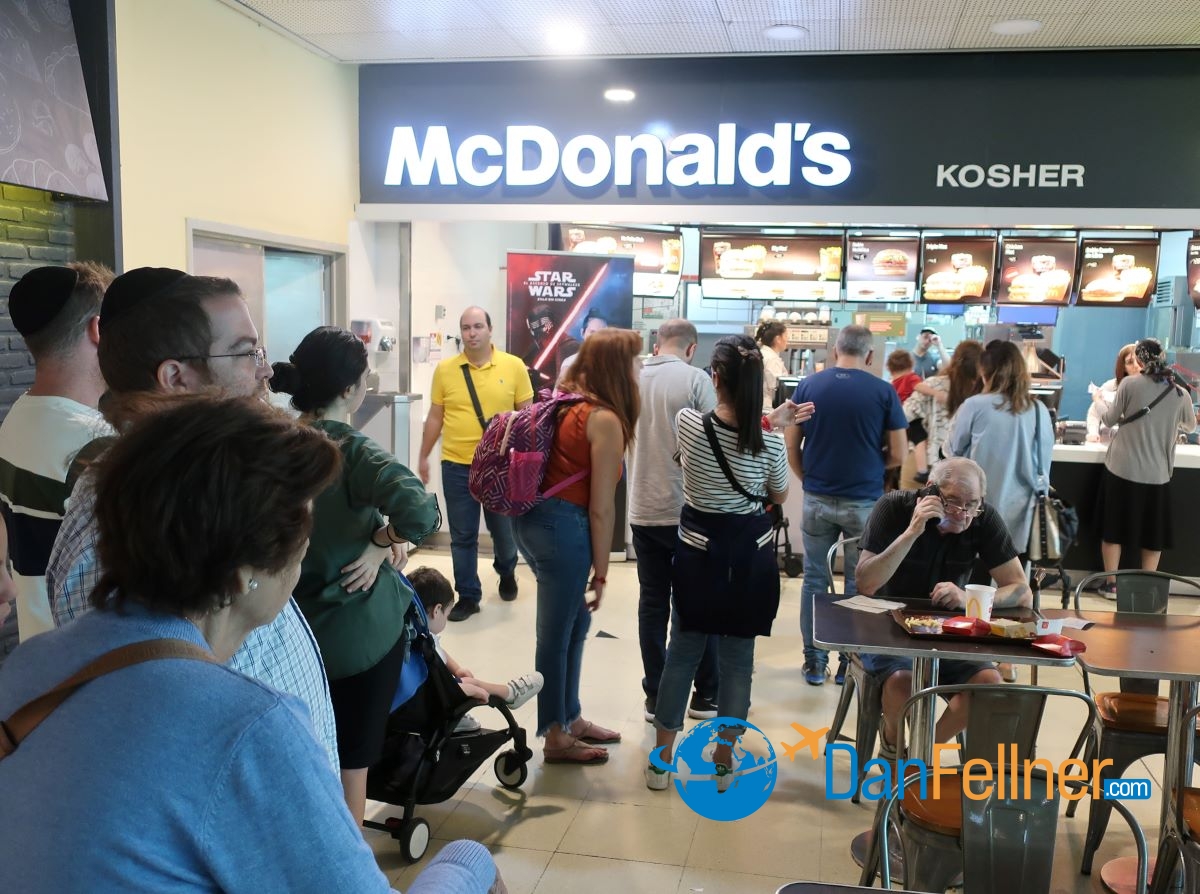
The lunch rush at the kosher McDonald’s in Buenos Aires’ Abasto Mall.
That’s a lot of cheeseburgers, milkshakes and special sauce.
But in the central part of Buenos Aires, in the Oncé section of town known as “the Jerusalem of Argentina,” you’ll find a unique McDonald’s at which none of those items is served.
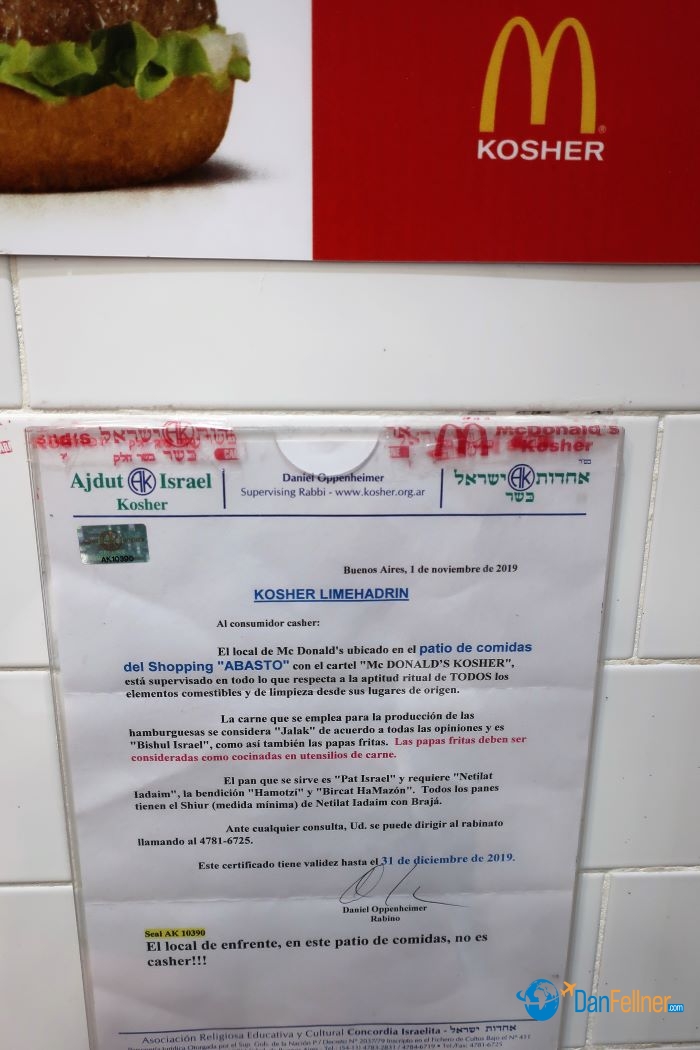
The restaurant’s official kosher certification.
Welcome to the only kosher McDonald’s in the world outside of Israel, a restaurant that does a booming business to meet kashrut dietary regulations – while satisfying the fast-food appetite – of the seventh-largest Jewish community in the world.
I recently had lunch at the kosher McDonald’s at the food court on the third floor in the Abasto Mall, where I met with several restaurant employees and an official from McDonald’s corporate offices in Buenos Aires. I was in Argentina’s capital city for one day, the final stop on a 14-day cruise on the Holland America Zaandam that circumnavigated the southern portion of South America.
Given the noteworthy nature of this particular Golden Arches, I hopped on an Uber from the cruise ship terminal and took a 30-minute drive through the busy streets of Buenos Aires to see the kosher McDonald’s for myself and sample some of its cuisine.

Tamara Herscovich, the on-site kosher supervisor, proudly displays a box of kosher beef patties outside the restaurant’s freezer.
The metropolitan area of South America’s second-most populous city is home to about 15 million people. While estimates vary, there are approximately 200,000 Jews living in the city. Most of the country’s Jews are Ashkenazi whose families fled to South America to escape persecution in Eastern and Central Europe.
Abasto used to be the city’s central wholesale fruit and vegetable market. The area is also well-known for being the home of Carlos Gardel, the world-famous tango singer. Abasto was converted into a multi-story shopping mall in the late 1990s.
At that time, the mall had two McDonald’s. But the mall’s owners, two Jewish brothers, decided they wanted to offer a product that would attract families from the surrounding area’s large Jewish community. Indeed, I was told there are 30-40 synagogues within walking distance of the Abasto Mall.
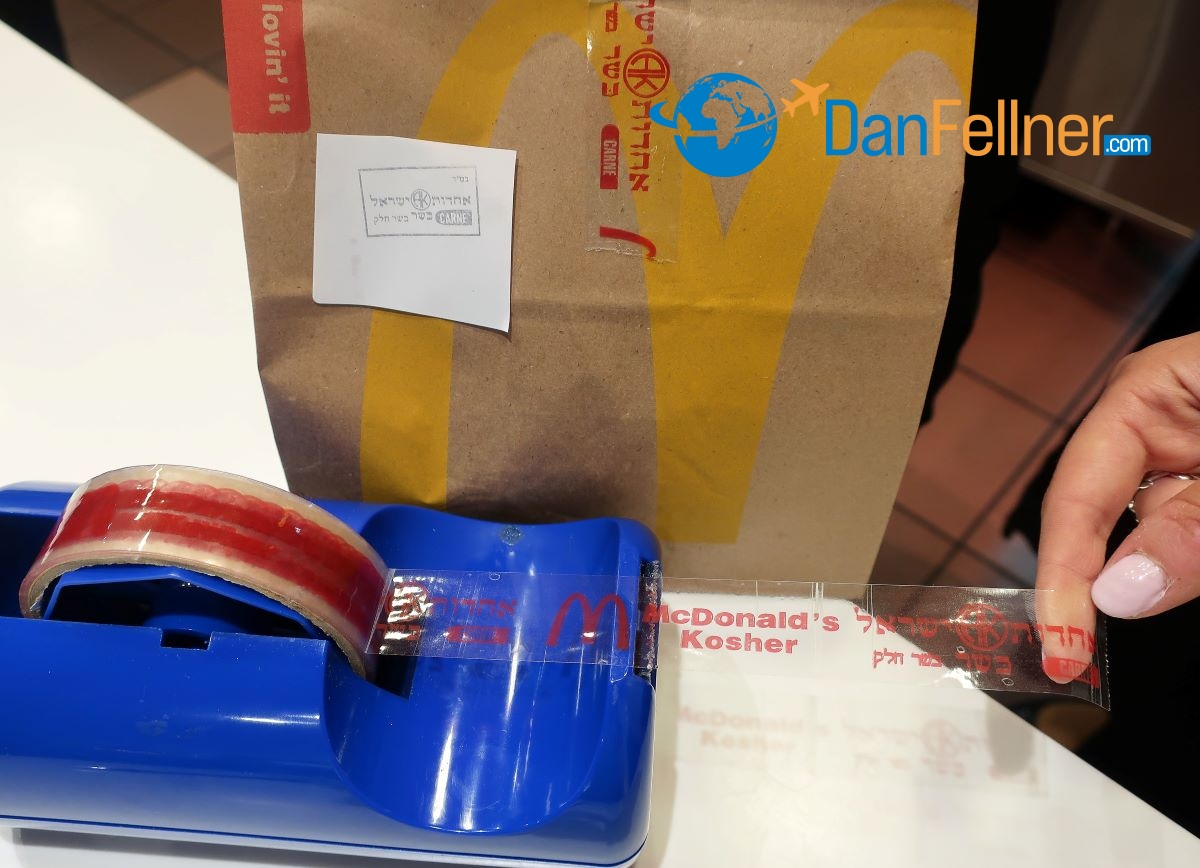
All the takeout orders at the McDonald’s are sealed with special tape, guaranteeing the kosher certification of the food.
So in 1998, the mall opened its third McDonald’s. This one, though, was labeled with signage next to the Golden Arches as being “kosher.” And the use of that word is not just a marketing ploy.
The McDonald’s is under the strict supervision of Rabbi Daniel Oppenheimer, one of Buenos Aires’ leading rabbis. The restaurant has a “kosher supervisor” on duty at all times to ensure every rule pertaining to kashrut is closely followed.
For starters, all the beef served in the restaurant is from cows raised in Argentina – known for its world-class beef — is certified kosher. There are no dairy products on the menu, including cheese, milkshakes or ice cream-cones or sundaes. For dessert, there is a non-dairy sundae on the menu, which I was told tastes more like mousse than ice cream. It comes in strawberry and caramel.
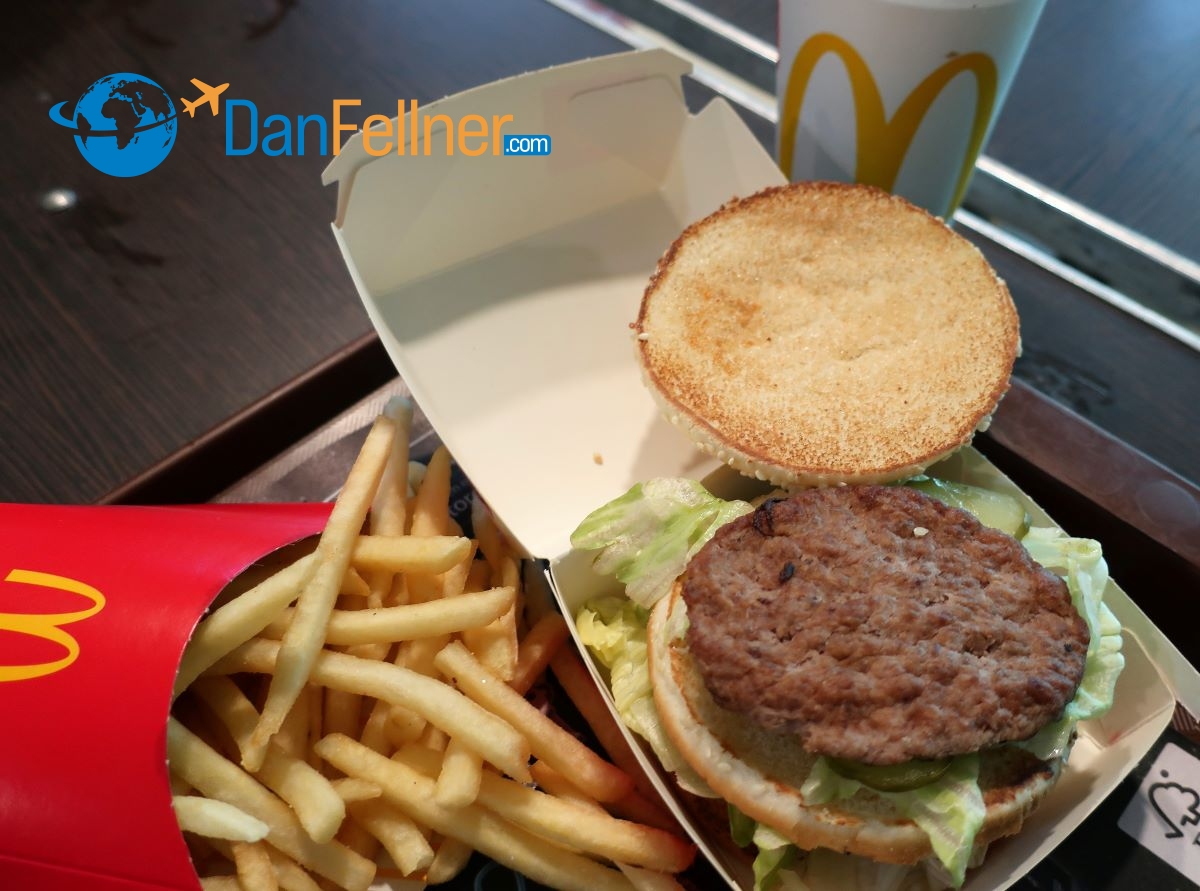
A kosher Big Mac — no cheese and no sauce — served at the McDonald’s at Abasto Mall.
And what about the iconic Big Mac, which recently celebrated its half-century anniversary? Yes, it comes with two all-beef (kosher) patties, lettuce, pickles, onions on a sesame-seed bun. But you can’t get cheese or special sauce (a mixture of mayonnaise, relish, mustard and other ingredients). The restaurant experimented with importing a non-dairy kosher sauce, but it was discontinued due to the prohibitive costs involved. Now, the sandwich is served with no sauce, which greatly reduces its production costs, not to mention its caloric count.
The restaurant closes at 3 p.m. every Friday for Shabbat and doesn’t reopen until Sunday at 10 a.m. I asked about Passover. Are hamburgers served on matzah instead of bread? No, the McDonald’s shuts down completely for an entire week during the holiday.
Florencia Santucho, who works in communications for McDonald’s in Argentina, said that while most of the restaurant’s patrons are local Jews, there is a large contingent of Israeli tourists who visit. Some Argentines, who aren’t Jewish, also frequent the restaurant to consume fast-food that’s a bit lighter and heart-healthier than non-kosher fare.
I was there for lunch on a Tuesday afternoon and the place was packed. Many of the customers were wearing kippot. The clientele looked like a mix of families and local business people on their lunch breaks from work.
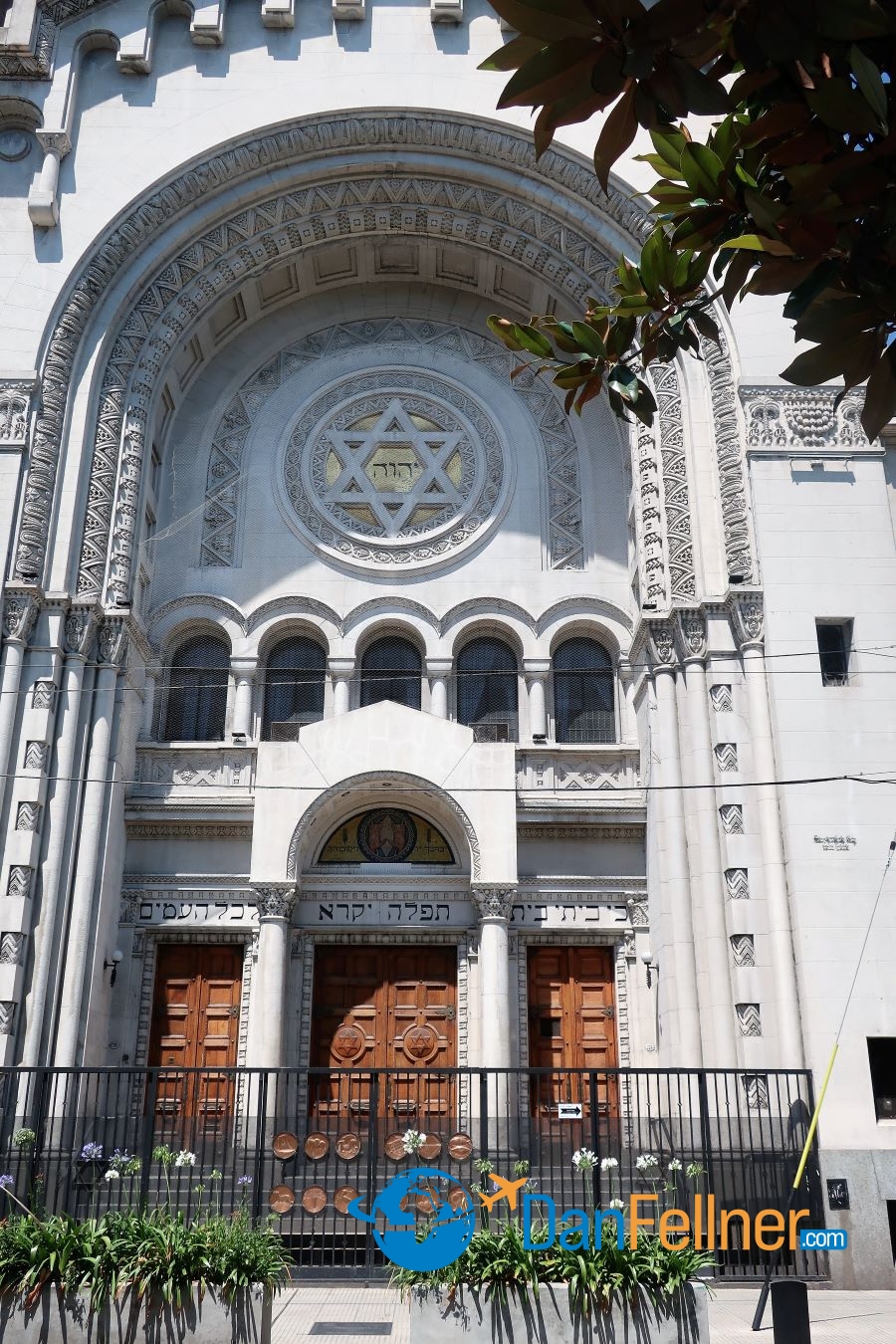
The beautiful Templo Libertad in Buenos Aires, declared a National Historic Monument in 2000.
Santucho took me back into the kitchen as part of a program McDonald’s has in Argentina called “open doors,” designed to give visitors a behind-the-scenes look at how the food is prepared and demonstrate to the public the fast-food chain’s growing commitment to transparency.
“It’s a good way to erase a lot of myths and fears,” she says.
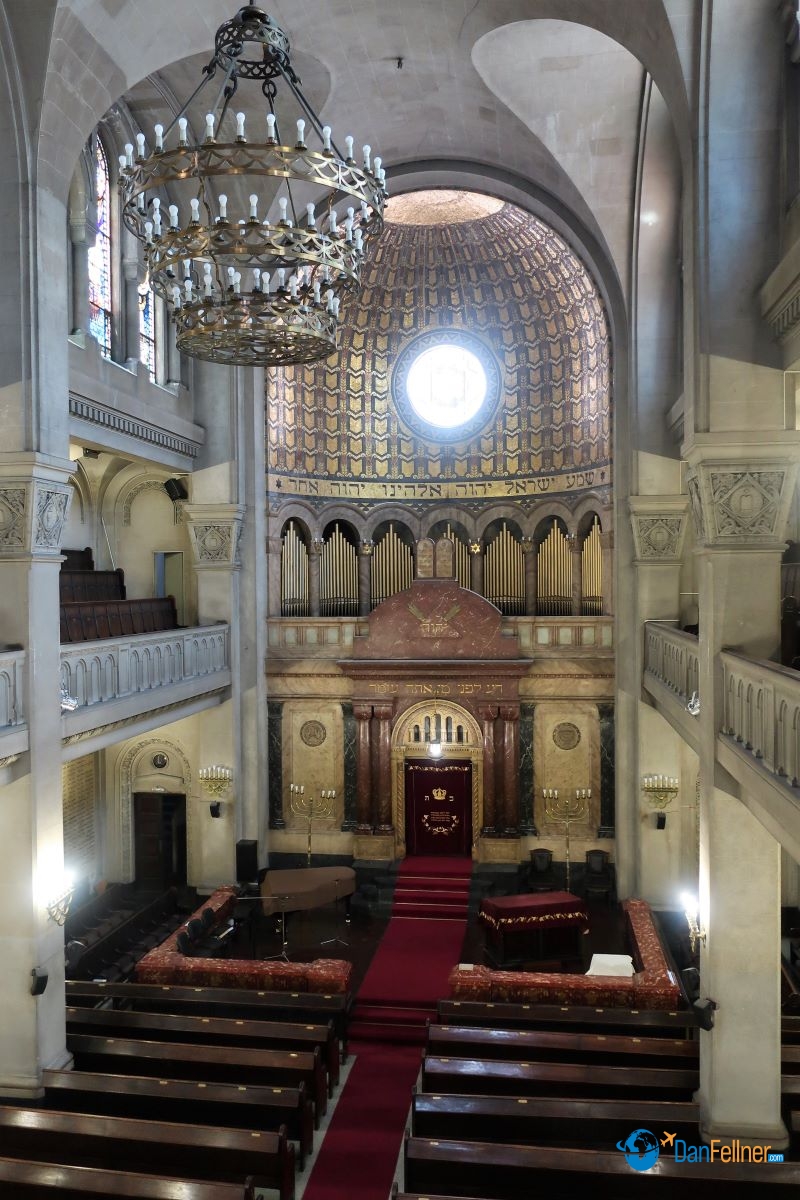
The interior of Templo Libertad in Buenos Aires.
While I was touring the kitchen, a young woman named Tamara Herscovich, the on-site kosher supervisor, showed me the steps taken to ensure the ingredients are correct and served according to kashrut law. All the takeout orders are sealed with special tape, guaranteeing the kosher certification of the food.
Herscovich, who also works as a Hebrew teacher at some of the nearby Jewish schools, said she regularly brings her students to the McDonald’s as part of the “open doors” program.
I also met Melanie Bialoskurnik, a Jewish hostess at the restaurant. She told me the kosher McDonald’s has helped instill a sense of pride in the Jewish community, which was decimated by two terrorist attacks in the early 1990s that killed more than 100 people. The restaurant has become much more than a place to eat hamburgers and french fries. It’s a meeting point and social hangout.
“It’s so important,” she says. “It’s a way the Jewish people feel connected to the community of Buenos Aires.”
And what happens when an unknowing customer orders a cheeseburger?
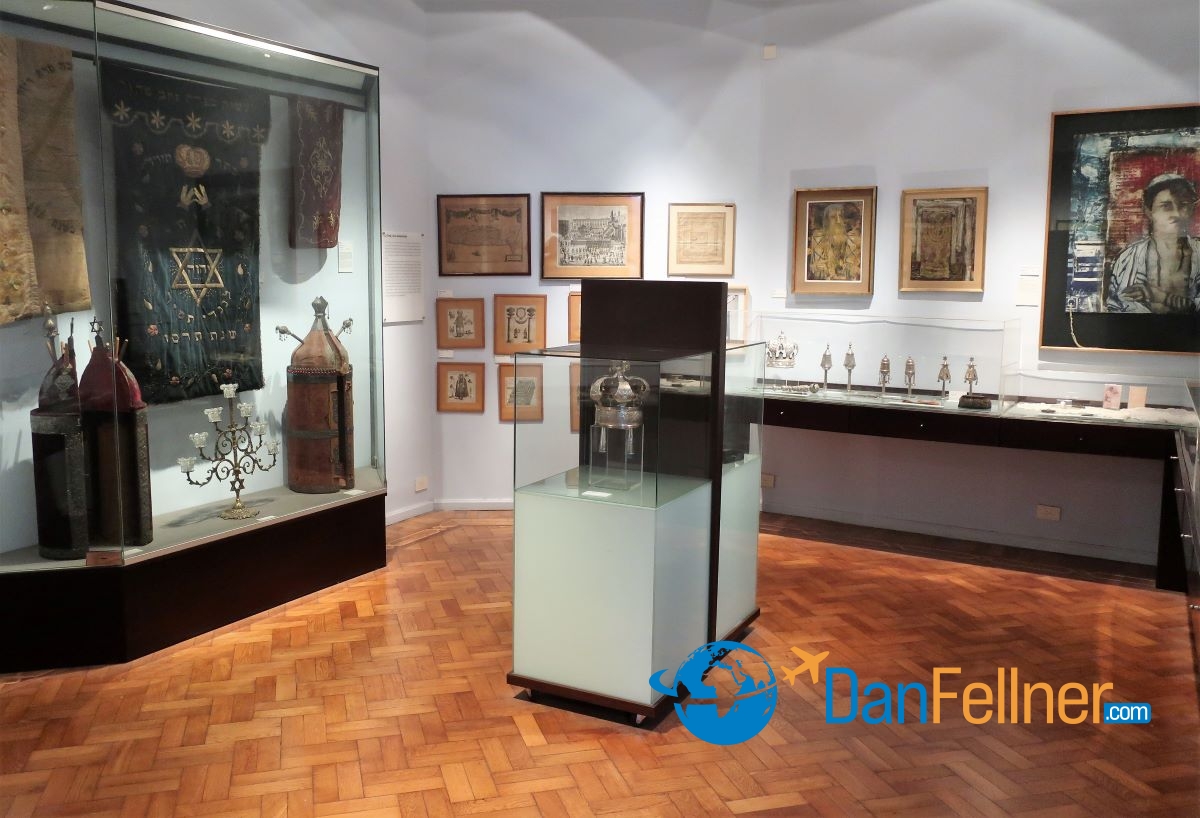
The Museo Judio, a small museum that chronicles the history of Jews in Argentina, is in the same building as the Templo Libertad synagogue.
“It happens all the time,” says Bialoskurnik. She politely sends them across the mall’s food court to a conventional McDonald’s where they can get cheeseburgers and ice-cream sundaes to their hearts’ content.
After leaving the Abasto Mall, I had a couple of hours before needing to return to the Zaandam. I took an Uber to see the oldest congregation in the city, the Israeli Congregation of the Argentinian Republic, founded in 1862. The congregation now prays in the beautiful Templo Libertad, inaugurated in 1932 and declared a National Historic Monument in 2000. The Conservative synagogue can seat up to 700 worshippers. It is connected to the Museo Judio, a small museum that chronicles the history of Jews in Argentina.
I had experienced a full and enriching day in Buenos Aires. I had successfully navigated myself across one of South America’s busiest and most congested cities, learned more about the ups and downs of the world’s seventh-largest Jewish community, and seen its most famous synagogue.
And yes, I had eaten my first 100 percent certified kosher Big Mac.
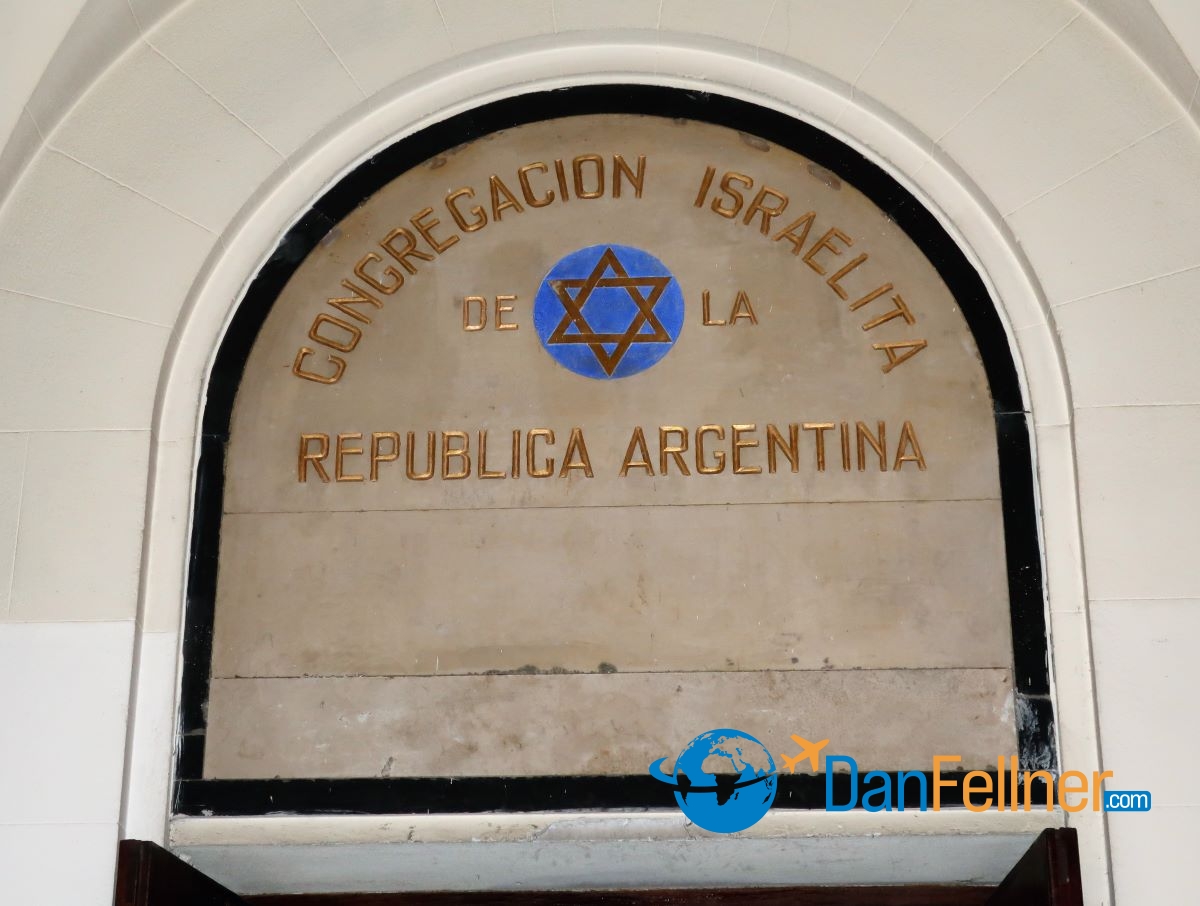
© 2019 Dan Fellner



